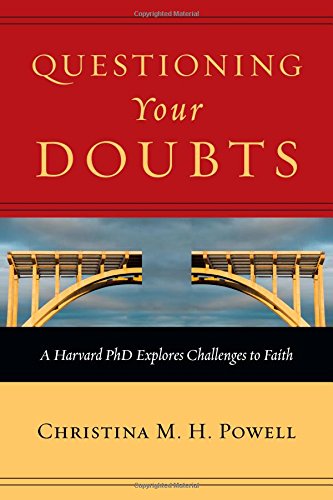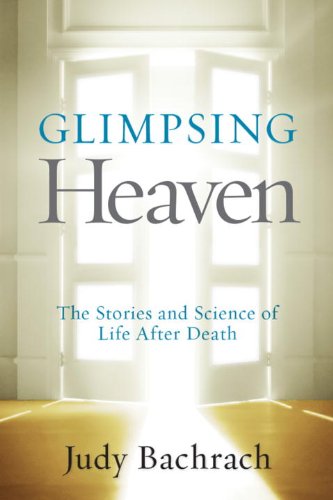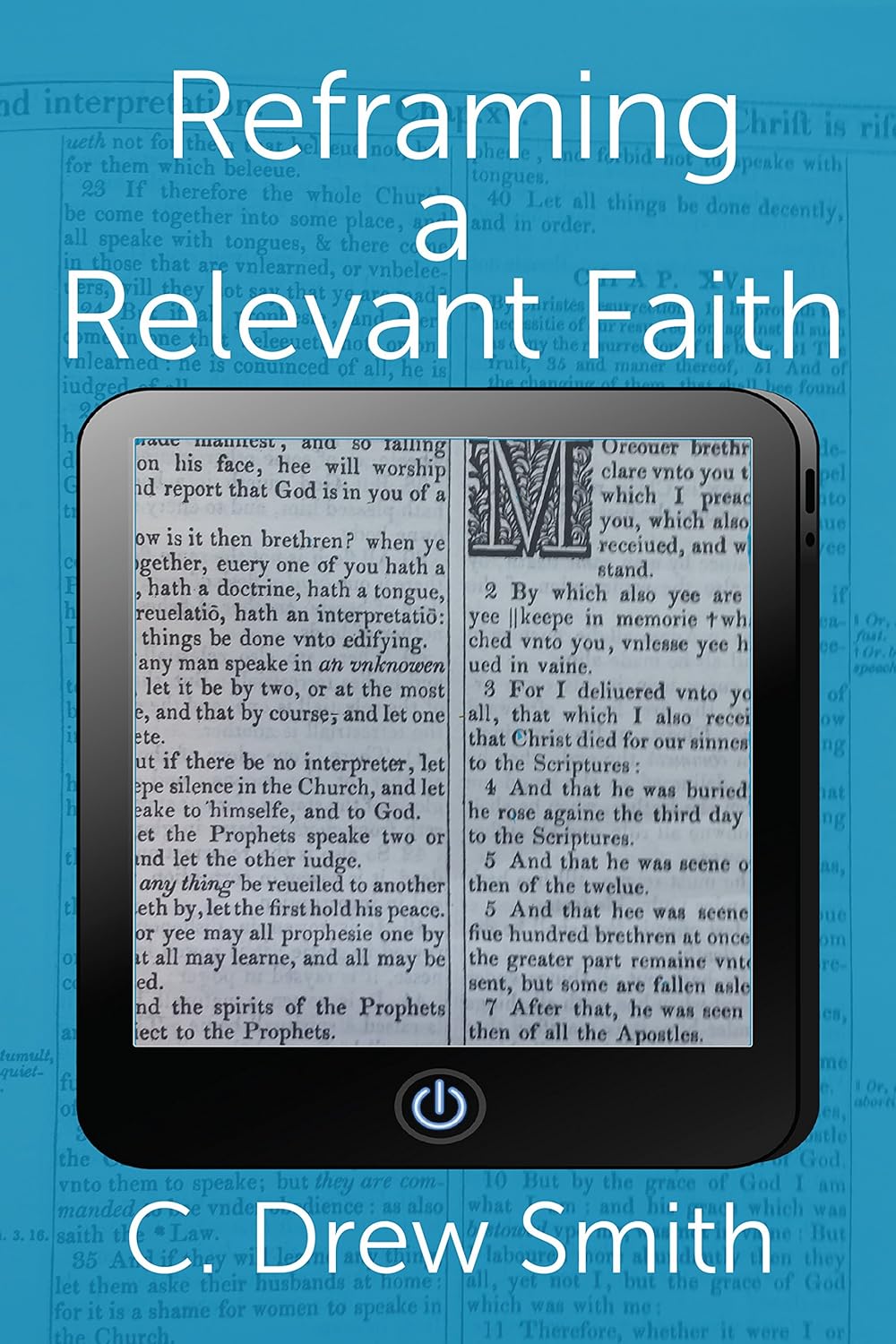Luke 5:5-7, The Fate of the Lost Sheep
“What man of you, having a hundred sheep, if he loses one of them, does not leave the ninety-nine in the wilderness, and go after the one which is lost until he finds it? And when he has found it, he lays it on his shoulders, rejoicing. And when he comes home, he calls together his friends and neighbors, saying to them, ‘Rejoice with me, for I have found my sheep which was lost!’”
//Read this parable closely. We all know the moral of the story, because after Luke presents the parable, he presents an interpretation:
“I say to you that likewise there will be more joy in heaven over one sinner who repents than over ninety-nine just persons who need no repentance.”
But did Luke interpret the story correctly or did he add his own flavor? One wouldn’t normally relate the sheep in this story to a repentant sinner, since it doesn’t do anything except wander away. Rather, the sheep’s fate seems a little darker.
When the man finds his sheep, he lays it over his shoulders and … goes home! He doesn’t take the sheep to the barn or the sheepfold. He carries the sheep home and calls his neighbors to come rejoice with him.
It’s not unlikely that the man served mutton at the celebration.

Book review: Questioning Your Doubts
by Christina M. H. Powell
★★★★★
Question your doubts, says Powell. An interesting twist, isn’t it? Research on metacognition, the process of thinking about one’s own mental processes, shows that doubting your doubts can lead to more confidence, while second-guessing yourself can lead to immobilization.
Powell, a biomedical research scientist with a PhD in virology from Harvard, hardly sounds like a person who should question anything that passes through her brain. Yet, even with all her learning, she struggles with doubts about God.
Truth is, I struggled a little with her struggle … in the beginning of the book. No, the book isn’t poorly written or unintelligent. That’s far from true. In fact, I’m pretty sure Powell could think circles around me. It’s just that often I couldn’t relate to her examples, and other times I felt like no example was necessary. In discussing our doubts about God, Powell often referenced practical situations from her post-graduate work. She discussed the influence of others, the decision-making process, the role of doubting in producing quality work, and so on. The instruction she gave for the most part seems intuitively obvious, and so the topic remained flat.
But the time came in the book when Powell’s story grew personal. She wrote of her mother’s faith, which Powell concluded was flawed. Her mother felt that denying logic was a measure of the strength of her faith. When faced with cancer, Powell’s mother put her faith in God’s healing power to the exclusion of medical treatment. Her death was inevitable, which then shook Powell’s father’s faith. His faith never recovered and he remained resentful of the teachings which cut his wife’s life short until his own death.
Powell’s story came alive for me in those pages. The research she conducted at the Dana-Farber Cancer Institute suddenly carried more meaning; her position of ordained minister with the Assemblies of God carried more clout; and her journey into doubt and how she learned to question her doubts kept me riveted for the second half of the book.
Says Powell, “a world of faith that mocks the advances of science breeds spiritual arrogance and plants the seeds of destruction in the lives of vulnerable people.” Today, her faith remains strong, and she encourages us to build a bridge between faith and reason.
Definitely a book worth reading.
Intervarsity Press, © 2014, 208 pages
ISBN: 978-0-8308-3678-9

Luke 15:21-24 Who is the Prodigal Son?
“And the son said to him, ‘Father, I have sinned against heaven and in your sight, and am no longer worthy to be called your son.’ But the father said to his servants, ‘Bring out the best robe and put it on him, and put a ring on his hand and sandals on his feet. And bring the fatted calf here and kill it, and let us eat and be merry; for this my son was dead and is alive again; he was lost and is found.’ And they began to be merry.”
//Today’s verses are found in the parable of the prodigal son. A wayward son requests his inheritance from his father, and then takes it to a strange land where he squanders it. When he returns, repentant, he finds himself still firmly within his father’s grace.
Ever wonder if this story of the prodigal son has a real person behind it? It might surprise you to learn that one of the earliest interpretations is that the prodigal son represents Jesus! Jesus was dead and came alive again, then went home to his welcoming father. But how did they make sense of the prodigal sinning and feeling unworthy?
The “decoder key” is found in the writings of Paul:
Christ Jesus,who, being in the form of God, did not consider it robbery to be equal with God, but made Himself of no reputation, taking the form of a bondservant, and coming in the likeness of men. And being found in appearance as a man, He humbled Himself and became obedient to the point of death, even the death of the cross. Therefore God also has highly exalted Him and given Him the name which is above every name –Philippians 2:5-9

Book Excerpt: The River of Life
Now as [Jesus] was going out on the road, one came running, knelt before him, and asked him, “Good Teacher, what shall I do that I may inherit [aionios] life?”
This man isn’t asking how to go to heaven when he dies. He is asking about the new world that God is inaugurating through the life of Jesus, and how he can be a part of it. Jesus tells him to sell what he has and give to the poor—this will help bring about the messianic age—after which Jesus makes a bold and confusing promise: “and you shall have treasure in heaven.”
It’s confusing because we have somehow come to believe we must go to heaven to obtain this treasure! As Bible scholar N. T. Wright would say, if my wife tells me she has a cake in the oven for me, it doesn’t mean I have to crawl in the oven to eat it. That God has special treasures in a storehouse in heaven for us hardly means they will be sitting idle up there until we die.
No, “eternal life” is not about heaven.
–The River of Life, Energion Publications, 2014 by Lee Harmon

Matthew 13:45-46, The Dark Side of the Pearl
Again, the kingdom of heaven is like unto a merchant man, seeking goodly pearls:Who, when he had found one pearl of great price, went and sold all that he had, and bought it.
//The Bible’s parables are fascinating for their many interpretations. I’m sure most of you are familiar with this parable, and most of you already know what you consider to be your “pearl of great price.”
But did you know that the meat of the oyster is not kosher? Not according to Jewish law. You could say then that the pearl is discovered by digging into a place where you don’t belong. In this story, a presumably successful man–a merchant–gives everything he has for something of no practical value, something which he should have stayed away from in the first place.
So, let’s cast a different light on this parable. It’s recorded in Greek, and the Greek word for pearl is … wait for it … margarita. Hmmm. Suddenly, I realize I’ve seen this parable played out over and over. Everything in life traded away for the pearl.
Suddenly, this doesn’t sound much like a Kingdom of Heaven, does it?

Book review: Glimpsing Heaven
by Judy Bachrach
★★★★★
This is the most comforting book about death I’ve ever read. Oddly, it wasn’t written by a Christian. Bachrach remains an atheist. It’s about near-death experiences, but it has nothing to do with belief. Rather, it’s a study of what “death travelers” report as having experienced.
The thing is, we are better able to study these experiences than ever before, because medicine has advanced so rapidly. Cardiopulmonary resuscitation, a frequent way of reviving the dead, has become commonplace. More and more people are brought back from the dead, their brains stuffed with memories of what they experienced. We now have tens of thousands of reported cases.
Some common claims include a lucidity of experience even among people with brain damage like Alzheimers, a feeling of deep bliss, and feeling of going home. Speechless communication with other beings is often reported. Traditional Christian teachings are usually contradicted; warnings of eternal damnation or promises of a blessed eternity to the faithful hold no water with those who have been there and back, and most return with no fear of death. A very common word on the lips of survivors when recounting what they experienced is “love,” but this experience has no correlation with religious attendance. It just doesn’t much matter what you believe. It happens to Christians, Jews, Buddhists and Hindus. It happens whether you believe in an afterlife or not; whether you believe in God or not. Only two of the people Bachrach researched encountered Jesus in the afterlife, and none met up with the devil.
However, some death travelers do still report a deepening of faith. One person recounted that she discovered she was “perfect, endowed with love,” and later realized that so is everyone else. She had never before understood the passage in the Bible about being created in God’s image, and it finally made sense.
The one thing that I found not comforting about Bachrach’s research is how commonly death experiences cause divorce. People who have experienced death often undergo a radical change in priorities. Selfish desires make way for universal concerns–they feel united and at one with rest of the world–and this new focus is hard for spouses to understand.
But are these experiences “real”? We still don’t know, but the experiencers usually insist they are. Bachrach fairly examines the pros and cons and doesn’t pretend to be an expert, but her bias shows. She believes.
National Geographic Society, © 2014, 249 pages
ISBN: 978-1-4246-1514-8

Mark 14:62, The Son of Man
And Jesus said, I am: and ye shall see the Son of man sitting on the right hand of power, and coming in the clouds of heaven.
//As I was reading Amy-Jill Levine’s Short Stories By Jesus, I was reminded of how many mysteries still remain about the man we consider our savior. Do we really know what Jesus meant by each of his parables? Do we know what he meant in some of his obscure sayings, such “I have not come to bring peace but a sword?” Do we even know what he meant when he called himself the Son of Man?
Jesus might have been speaking about himself as just an ordinary man, in the language of Ezekiel. You can find many references to Ezekiel as the “son of man.”
Jesus might have been elevating himself along with all mankind to the near-divine realm, as in Psalm 8:4-5, where the “son of man” is described as a little lower than the angels.
Jesus might have been alluding to the “son of man” in the book of Daniel, which describes a messiah sent by God, who is promised dominion over the earth in an everlasting kingdom.
Or he might have been using the phrase merely as an Aramaic idiom for “I”, which carries no connotations whatsoever.
So was Jesus depreciating himself, elevating himself, or neither? The answer may seem obvious to you, given what you’ve been taught–I certainly have my opinion–but do we know, really?

Luke 24:44, What is the Tanakh?
Then He said to them, “These are the words which I spoke to you while I was still with you, that all things must be fulfilled which were written in the Law of Moses and the Prophets and the Psalms concerning Me.”
//I usually try to stay away from words which may be unfamiliar to general users, but sometimes they slip into my posts. So let me go back to the basics of Hebrew scripture and settle a little of the confusion.
The Hebrew Bible is different from our Christian Bible. Jews today don’t have an Old Testament because it was never replaced with the New one. They have one set of scripture, all written before Jesus came along, known as the Tanakh … an acronym for Torah (the first five books of the Bible known also as the Pentateuch, and which I habitually refer to as the Law or the Law of Moses), the Nev’im (known also as the Prophets) and the Ketuvim (known as the Writings, books like Psalms and Proverbs). This is the scripture Jesus was familiar with. So when Jesus refers to “the Law and the Prophets,” he’s talking about written word: the books in our Old Testament traditionally thought to be authored by Moses and various Jewish prophets.
These three categories are in order by reverence. The Law of Moses was the most highly esteemed portion of the Tanakh, followed by the Prophets, and finally the Writings, which to many of the Jews was more like words of wisdom than scripture. I say “to many”, because different Jewish sects had different priorities. Sadducees did not elevate even the Prophets to the level of scripture, let alone the Writings. That is why Paul could say the Sadducees didn’t believe in resurrection; you won’t find any promise of an afterlife in the first five books of the Bible. But other sects sprang up which prized the prophets more highly; the Pharisees is an example. Another one in particular was founded on the idea that the Messiah had arrived. A man named Jesus. This sect soon spread to the Gentiles, became known as Christians, and began adding their own books to scripture … books meant to supercede the Tanakh with a new testament! So this final set of writings, revered most highly of all among Christians, is rightly considered a sacrilege by observant Jews!

Reframing a Relevant Faith
by C. Drew Smith
★★★★★
Progressive Christian C. Drew Smith asks, “Is Christianity a religion that legitimizes intolerance, subjugation, and violence, or is it a faith of tolerance, equality, and peace?”
He locates the answer only after digging clear back to our Savior, and Smith brings a Ph.D. in the New Testament to help with the job. Jesus, Smith explains, believed that God was presently acting in the world to bring about something new, a radical shift in the Judaism of his day. He invited people to enter an empire; an alternative empire, the Empire of God, under the rule of God. He was calling them to offer their allegiance to God and not Caesar. Jesus’s dream of a Kingdom of God was never about getting to a place called heaven. It was a call to insubordination against the Roman Empire and all that was unjust. Joining the Jesus movement meant opposing the powers that carried out oppression, violence, and injustice, whatever those powers may be.
How do we oppose injustice? First and foremost, Jesus called his followers to respond to the harm that is done to them with nonviolence. Turn the other cheek. Learn to love even those who harm you. Develop a “radical love” for neighbors and enemies equally in the quest for compassion and justice. And do so in an outward practice, welcoming and embracing your enemies.
Can it possibly work? Jesus bet his life on it, and he turned out to be right, though he wouldn’t live to know it. Smith argues that Jesus surely understood his fate, that he would most likely be crucified. History had told him that to challenge the authority of Rome was treason, and the penalty for treason was death. We may not need to die for the cause as did our leader, but let’s be clear: Following Jesus is liberating, but it is also demanding. It is costly. If your Jesus permits you to wage unjust violence against your enemies in the name of national security, if he allows you to hoard money and possessions in the name of financial security, if he consents to your prejudices against people of other races, genders, religions and sexual orientations, then he is not the Jesus of the Bible. The real gospel of the real Jesus calls us to give up ourselves in self-sacrificial service to God and others by taking up the cross and following Jesus. The question is not “can it work,” but “can we embrace the crucified Jesus?”
In case you haven’t figured it out yet, I absolutely loved this book. I struggle to rate it because, frankly, I agree so strongly with everything inside its covers that I fear my own bias will unfairly influence my rating. Yet as I now go over my notes, I see how much encouragement it provided me, which seems a fair measure of the book’s value. So, five stars, with no apology. Thank you for your humble message, Mr. Smith, and thank you, Energion Publications, for knowing how much i would fall in love with the review copy you sent for my perusal.
Energion Publications, © 2014, 122 pages
ISBN: 978-1-63199-121-9

Genesis 9:25-27, The Curse of Ham
And [Noah] said, Cursed be Canaan; a servant of servants shall he be unto his brethren. And he said, Blessed be the LORD God of Shem; and Canaan shall be his servant. God shall enlarge Japheth, and he shall dwell in the tents of Shem; and Canaan shall be his servant.
//I’ve heard it. Unless you’re under fifty, you’ve probably heard it too. Ham was a black man, and his son was cursed by Noah such that his descendants would become slaves.
The idea of black skin stems from a misnomer relating the name “Ham” to the Hebrew word for black, brown, or burnt. The sons of Canaan–Cush, Mizraim, Phut–are thought to have populated Africa. Psalms 78, 105 and 106 refer to Egypt as the “land of Ham.” Thus, says the logic of Christian thinking dating back to the 17th century, black people are biblically destined to be slaves.
This may seem like silliness today, but overcoming this logic in the church was very difficult and caused great tension. In 1845, the Southern Baptists split from the northern Baptists over the issue of slavery. Only 20 years later, the Thirteenth Amendment outlawed slavery in the states. Yet it was another 130 years before the Southern Baptist Convention voted to adopt a resolution apologizing for its defense of slavery and its promotion of racism.
In 2012, the Southern Baptists elected their first black president, a pastor named Fred Luter Jr. Overcoming our prejudices may take time, but Christianity is slowly moving in the right direction.


















 354 Circles
354 Circles
 603 Goodreads Friends & Fans
603 Goodreads Friends & Fans

 Hello! I'm an author, historical Jesus scholar, book reviewer, and liberal Christian, which means I appreciate and attempt to exercise the humanitarian teachings of Jesus without getting hung up on any particular supernatural or religious beliefs.
The Bible is a magnificent book that has inspired and spiritually fed generations for thousands of years, and each new century seems to bring a deeper understanding of life’s purpose. This is true of not only Christianity; through the years, our age-old religions are slowly transforming from superstitious rituals into humanitarian philosophies. In short, we are growing up, and I am thrilled to be riding the wave.
I avidly read all thought-provoking religion titles. New authors: I'd love to read and review your book!
Hello! I'm an author, historical Jesus scholar, book reviewer, and liberal Christian, which means I appreciate and attempt to exercise the humanitarian teachings of Jesus without getting hung up on any particular supernatural or religious beliefs.
The Bible is a magnificent book that has inspired and spiritually fed generations for thousands of years, and each new century seems to bring a deeper understanding of life’s purpose. This is true of not only Christianity; through the years, our age-old religions are slowly transforming from superstitious rituals into humanitarian philosophies. In short, we are growing up, and I am thrilled to be riding the wave.
I avidly read all thought-provoking religion titles. New authors: I'd love to read and review your book!
 Hi! While Lee writes the articles and reviews the books, I edit, organize, and maintain the blog. The views expressed here are Lee's but I'm his biggest supporter! :-)
Hi! While Lee writes the articles and reviews the books, I edit, organize, and maintain the blog. The views expressed here are Lee's but I'm his biggest supporter! :-)
Connect With Me!